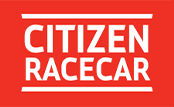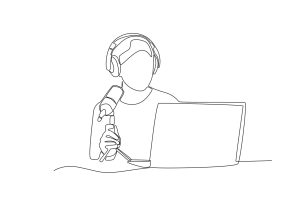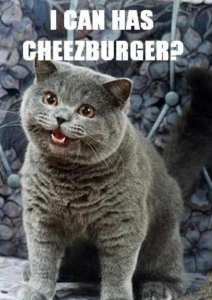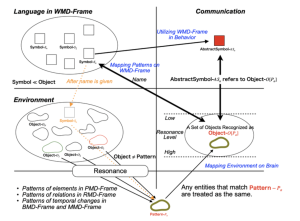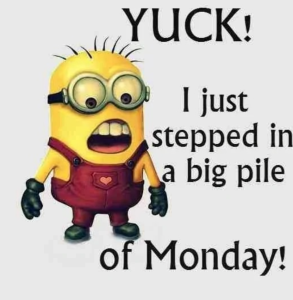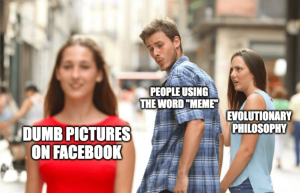CitizenRacecar is and has always been a podcast production agency. We have been producing podcasts for more than twelve years, and across our team of podcast producers, audio engineers, podcasting educators, and digital marketers, we have truly deep experience in every aspect of creating a successful podcast series. We love podcasts and podcasting.
Or do we? Sometimes I wonder. Over the time we’ve been doing this, the definition of “podcast” seems to have undergone a significant shift, and it’s one that makes us ask significant questions. We still do the same work we always have—world-class episodic audio storytelling designed to solve specific marketing and positioning challenges for our clients—but does the term “podcast” still fit this work, or does it mean something else now?
The online dictionary Oxford Languages defines podcast as:
“A digital audio file made available on the internet for downloading to a computer or mobile device, typically available as a series, new installments of which can be received by subscribers automatically.”
This is what I would call the traditionalist’s definition, reading the same as it would fifteen years ago.
Dictionary.com, on the other had, gives us something perhaps more up-to-date:
“a digital audio or video file or recording, usually part of a themed series, that can be downloaded from a website to a media player or computer”
There are really only two changes: the addition of “or video”, and the removal of “automatic receiving”, but these small changes contain multitudes.
Defining Categories
When it comes to categorizing a piece of media, we can do it in a few ways:
- By its delivery system (“cable TV series”, “radio show”, “hardcover book”)
- By its format (“game show”, “novel”, “daily news report”), or
- By its style (“sci-fi”, “romance”, “poetry”, “investigative journalism”)
So what kind of category is “podcast”? In the old definition, it was clearly a delivery system: on-demand periodical audio transmitted by RSS feed. This is clear and specific, and suits the word—the “pod” in “podcast”, coming from “iPod”, which was (at the time) an audio-only mobile media player.
In the world of that new definition, though, things are much more fuzzy. “a digital audio or video file or recording, usually part of a themed series, that can be downloaded from a website to a media player or computer” is catastrophically vague, and could be equally applied any number of things that are clearly not podcasts: a webisode, a public service announcement, a TV show, a stand-up comedy special, the newest Taylor Swift song, Raiders of the Lost Ark.
So how do we know what is a podcast and what isn’t? Unfortunately, in a world where podcasts aren’t necessarily audio, aren’t necessarily episodic, and aren’t necessarily published via an RSS feed, the term“podcast” shifts from referring to a delivery system to referring to a genre of content. “Podcasts” mean, to many, “online talk shows”.
But not all online talk shows.The comedian John Mulaney put out a miniseries on Netflix this year called “Everyone’s In LA”, a sharp and funny parody of late-night TV. It seems to tick off all the points of the new definition of a podcast: it’s digital video, a themed series, and can be downloaded from the Netflix website or app to your phone or computer (assuming you have a Netflix account). But no one has ever referred to this show as a “podcast”. Likewise, Jerry Seinfeld’s interview show “Comedians in Cars Getting Coffee” also ticks off all the boxes of that definition, and is, in style, even closer to what most people think of when they think of a “podcast” – a loose, funny, celebrity interview show. But again, no one that I know of has ever referred to this series as a podcast.
But why? If we accept this new definition of “podcast”, and these fit the criteria, why aren’t they considered podcasts? With so many true crime podcasts out there, why are popular true crime TV shows like American Monster or Snapped considered TV shows and not podcasts? One answer might be “because you don’t listen to them on a podcast app”—but we rejected that definition, remember? Podcasts aren’t just audio, says the new paradigm, they can be video also, and they aren’t just consumed on podcast apps, they can be on YouTube or anywhere else.
So what does that leave? Unfortunately, the only possible differentiator between a podcast and a TV show, according to that new definition, is quality. Those shows I mentioned aren’t podcasts because the production values are too high. They are professionally shot, professionally edited, and put behind a paywall with other series that have been deemed of higher quality than what you can watch elsewhere for free. In this unfortunate new paradigm, it seems that the meaning of “podcast” has transmogrified from “a story told with sound, delivered on demand” to “an online interview, history, or true crime series that is too low-budget and DIY to be considered a television show”. We are taking a medium with unlimited upward potential for growth in creative quality and changing it into a permanent backwater for amateurs.
But wait – what do you mean, “backwater”? I love podcasts!
Yes! I do too! And many of my favorite podcasts have a very simple format and low production costs. There are many shows that make absolute magic out of two people in a room with microphones talking.
The problem is that when we define “podcast” as “two or three people in a room talking into microphones”, there are enormous creative limitations to what can be done in the medium. Anything that stretches that format too far no longer qualifies as a podcast, and so, as creators, we are handcuffed to it. When we think of a podcast as “episodic on-demand audio”, the handcuffs are removed, the ceiling opens, and the creative imagination can float into the stratosphere.
I Can Has Podcazt?
Words change meanings all the time, of course, and this wouldn’t be the first time a word’s definition has been hamstrung by common usage.
In 2000 or 2001, when I was in my early 20’s, I was dragged by a friend to a lecture at Skidmore College in upstate New York. Speaking was the very famous scientist and philosopher Richard Dawkins (who, being young and dumb, I hadn’t yet heard of). He spoke about a theory he was involved in devising, which said that when ideas move from person to person they change and evolve, and that evolution follows similar patterns to biological evolution. This meant that you could track the development of ideas in the same way you tracked the development of species of animals. This is very interesting hypothesis, and Dr. Dawkins had invented a new term to help explain it, which meant something like “a trackable idea chunk”—a quantum of thought that could be studied in this way.
Now, even if you’ve never heard of this concept before, you’ve absolutely heard the word he coined. That word is “meme”.
As in…
…meme.
So how on Earth did this happen? How did a word specifically invented to explain a highly sophisticated (and I think, rather beautiful) hypothesis about the transmission and evolution of human thought come to be universally understood to mean, instead, random stock photos with added text?
In other words, how did we get from this:
To this?
The short answer is that languages evolve. Many words, maybe even most of them, used to mean something different from what they currently do. “Nice” originally meant “foolish”. A “clue” was once a ball of yarn. In my lifetime, “the web” was something that the spider spun, and a “tablet” was either a block of stone or a pill to swallow. In the end, words mean whatever people want them to mean, and the majority always rules. If a critical mass of people start using a word to mean something different from what it meant before, that is now what the word means, and no scientist or linguist or grammarian or authority of any kind can do a damned thing about it.
So what can we do a damned thing about?
So glad you asked.
The good news is that while we may be at an inflection point, all is not yet lost when it comes to the meaning of the word “podcast”. Things are trending to the vague, unsatisfying, and quality-dependent definition, but they haven’t tipped over completely. If enough of us who are making high-quality audio-first or audio-only podcasts continue to do so, we can still keep possession of the word. But also, and more importantly, we can remember that the nature of things is more important than the words we use to refer to them. A rose by any other name would, in fact, smell as sweet, and calling a pile of manure a petunia wouldn’t make it smell any better. Meme theory is a powerful concept, whether or not the term has been usurped.
Something I can declare with certainty is that audio is really powerful. When compared to video, it is demonstrably more intimate, more flexible, more cost-effective, and more portable. There really is no better medium for conveying complex stories widely and accessibly. Whether we call them podcasts, audio series, on-demand radio, or flying sausagepickles, they have real value to audiences, creators, and brands. We will continue to work in this medium (whatever it is called) and continue to evangelize for it.
And so today, we are definitely still a podcast production agency. Tomorrow, who knows? But whatever happens, our work will sound terrific, convey information in a uniquely powerful way, and deliver impressive results for our clients.
(David Hoffman is the Founder & Principal of CitizenRacecar)




